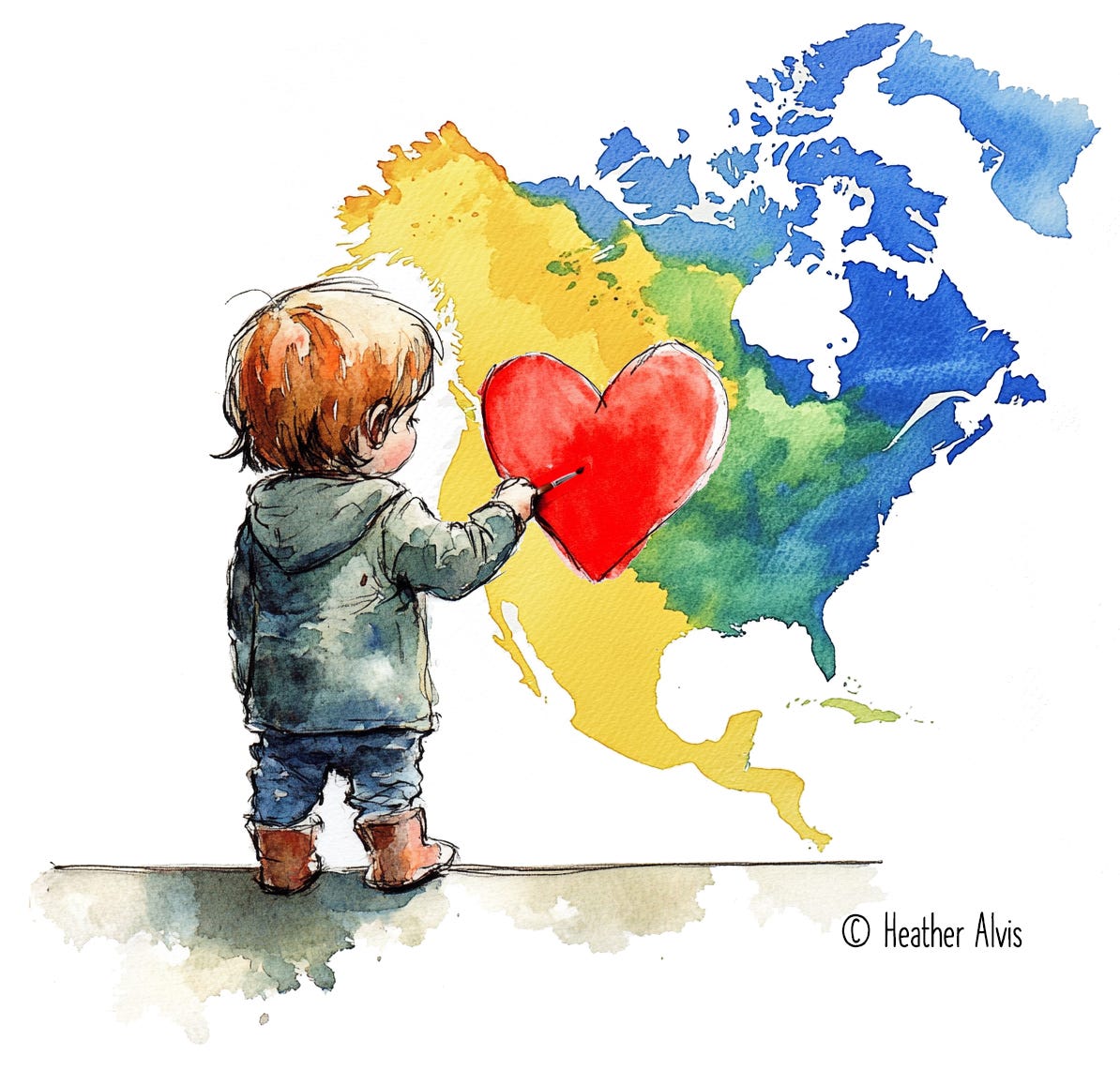How Alberta is Building a Circularity Program That Actually Works — And Feels Human
When a government-run recycling program sends you a gift made from repurposed hockey sticks, you take notice—and maybe even consider moving to Canada.
A few weeks ago, I got a message on LinkedIn from a team member at Alberta Recycling Management Authority (ARMA), Canada’s provincial recycling program.
They were reaching out with questions about solar panel stewardship and how Electra, our U.S.-based platform for panel tracking and reverse logistics, might intersect with or inform their work.
From the first exchange, I was struck by their genuine curiosity. These weren’t performative “innovation” conversations. They asked smart, thoughtful questions.
They wanted to understand what was working and not working in our system.
And they truly listened.
Then something surprising happened.
In the mail this week, I received a "WOW" gift package. You might recognize this tactic if you’ve ever worked in marketing or sales. An old-school way to make customers feel special.
But this wasn’t just any swag bag.
It was a beautifully curated, on-brand care package that included:
A handwritten card (they had me right there!)
A reusable shopping bag
A recyclable pen
A cutlery set (fork, spoon, chopsticks, collapsible straw) made from recycled plastic
And the pièce de résistance: a bottle opener made from repurposed hockey sticks.
Canadian. Clever. Circular.
This wasn't just thoughtful, it was operationally intentional.
Anyone who has coordinated international shipping and customs for gifts knows it’s not simple. That’s what made it even more special. I’d wager I’m not the only recipient either, which means ARMA likely has a system in place for stewarding these moments of appreciation.
And it’s working.
But the real reason I’m sharing this isn’t just about the package.
It’s about what Alberta has quietly built.
Policy That Works, and Works with People
Alberta has created a publicly managed recycling authority that feels… agile.
Transparent. Modern.
Their solar panel program is still relatively new and in process, but they’ve already built an informative, intuitive website for other recyclables like electronics, paint, tires, and hazardous waste. They show you exactly what materials are accepted, how the legislation evolved, where to take your items, and how it’s funded through Extended Producer Responsibility (EPR).
Granted, we do have something similar in some states in the U.S., but the intentionality and the care are noticeable in the details, and this is a government-supported program.
For those unfamiliar with the concept, EPR shifts the cost of recycling from taxpayers and municipalities to the manufacturers who create the products in the first place.
It’s not a punishment, it’s a way to build accountability into the system and unlock innovation.
ARMA explains it beautifully here.
They’ve created something many of us working on U.S. policy reform can only dream of: a province-wide EPR program that’s clear, supported, and working.
A Contrast and a Signal
Here in the U.S., we’re making progress.
State by state.
Material by material.
For example, we have the Product Stewardship Institute on the East Coast, and the National Stewardship Action Council on the West Coast, both doing phenomenal, uphill work across packaging, carpets, e-waste, and more.
But most of our programs are fragmented or siloed.
They get stuck in a battle on the legislative floor, at the mercy of industry lobbyists.
Sometimes they pass and are forced into agonizing delays.
Just look at what happened in Washington State, where a solar panel stewardship law passed in 2017, which won’t be enforced until 2029 (at the earliest).
So when I see a government agency like ARMA leading with both heart and structure, I pay attention.
Because it shows us what’s possible.
Circular Infrastructure Requires More Than Tech
We often think of circularity as a materials science or software problem.
And yes, those are vital. But this moment reminded me: systems-level change requires culture too.
It requires that we show up with generosity.
We make people feel seen.
We ask good questions.
We listen.
And we steward relationships, not just materials (or marketing).
Alberta is doing that. And with the recent victory of Mark Carney in Canada’s national election, it feels like the country may be on the brink of even greater alignment around climate and circular policy.
What We Can Do From Here
We can celebrate programs like ARMA. We can adapt their models.
And we can keep building local momentum until our own systems catch up.
In the meantime, if you’re in government, startup, or policy circles, especially in solar, batteries, electronics, or hard-to-recycle materials, I highly recommend studying Alberta’s playbook.
Because it’s working and it’s inspiring.
And as someone working hard to build something similar here in the U.S., I’m filled with gratitude and optimism.
Thank you, ARMA.
You’ve reminded me, and many others, why we do this work.






Hi Heather! I've just stumbled on your writing and happy to lend a heart to your cause. I hope more people can see examples of circularity in action and think about it. Thank you for writing and sharing.
Well!! Timely "A new door has opened for you and your business prospects. Just across our border with a friendly Country, who's people still love most Americans, and vice versa. (Exceptions)Trump and his followers. Not opened- minded to new ideas or methods to improve the future,for everyone. Saving the earth, Slow Negative Climate changes while we have time. Model Better ways of living, love and respect others, share time with your own community, in person not just on phones and computers. Seems we may find some of the answers, right next door in Canada.